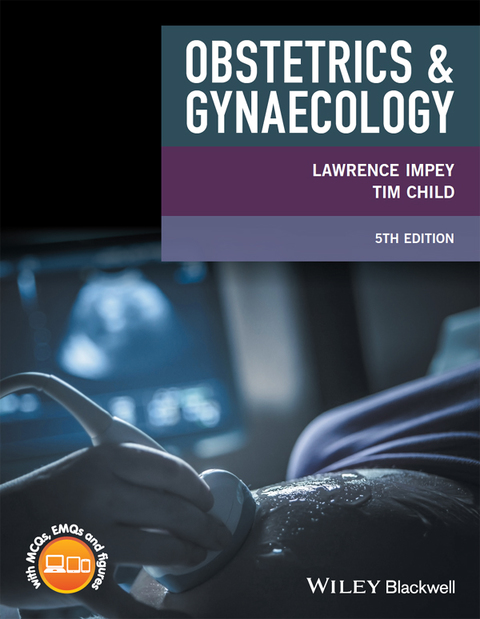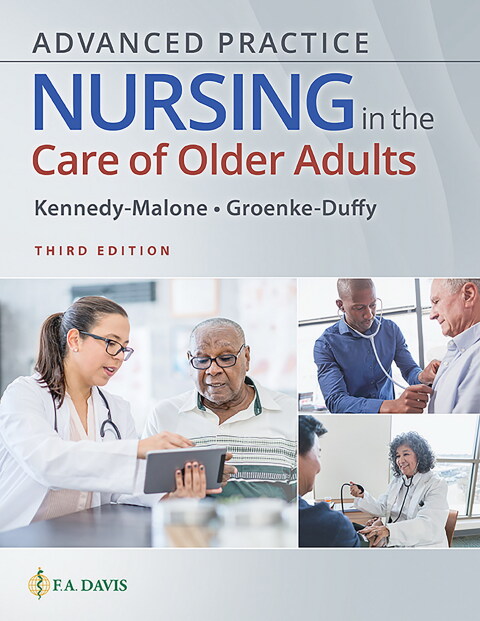Description
Efnisyfirlit
- Preface to the fifth edition
- Preface to the first edition
- Acknowledgements
- List of abbreviations
- About the companion website
- Gynaecology
- Chapter 1: The history and examination in gynaecology
- The gynaecological history
- The gynaecological examination
- Chapter 2: The menstrual cycle and its disorders
- Physiology
- Abnormal uterine bleeding (AUB)
- Heavy menstrual bleeding (HMB)
- Irregular menstruation and intermenstrual bleeding
- Absent and infrequent menstrual bleeding (amenorrhoea and oligomenorrhoea)
- Postcoital bleeding
- Dysmenorrhoea
- Precocious puberty
- Ambiguous development and intersex
- Premenstrual syndrome
- Chapter 3: The uterus and its abnormalities
- Anatomy and physiology of the uterus
- Fibroids
- Adenomyosis
- Other benign conditions of the uterus
- Endometrial carcinoma
- Uterine sarcomas
- Chapter 4: The cervix and its disorders
- Anatomy and function of the cervix
- Benign conditions of the cervix
- Premalignant conditions of the cervix: cervical intraepithelial neoplasia
- Malignant disease of the cervix
- Chapter 5: The ovary and its disorders
- Anatomy and function of the ovaries
- Ovarian symptoms
- Disorders of ovarian function
- Classification of ovarian tumours
- Ovarian cancer
- Palliative care
- Chapter 6: Disorders of the vulva and vagina
- Anatomy
- Vulval symptoms
- Miscellaneous benign disorders of the vulva and vagina
- Premalignant disease of the vulva: vulval intraepithelial neoplasia
- Carcinoma of the vulva
- Malignancies of the vagina
- Chapter 7: Prolapse of the uterus and vagina
- Anatomy and physiology of the pelvic supports
- Prolapse
- Chapter 8: Disorders of the urinary tract
- Anatomy and function of the female lower urinary tract system
- Investigation of the urinary tract
- Urinary stress incontinence
- Overactive bladder
- Other urinary disorders
- Chapter 9: Endometriosis and chronic pelvic pain
- Endometriosis
- Management
- Chronic pelvic pain
- Chapter 10: Genital tract infections
- Infections of the vulva and vagina
- Infections of the uterus and pelvis
- Vaginal discharge: causes and treatment
- Chapter 11: Fertility and subfertility
- Definitions
- Disorders of ovulation
- Male subfertility
- Disorders of fertilization
- Assisted conception
- Chapter 12: Contraception
- Hormonal contraception
- Emergency contraception
- Barrier contraception
- Intrauterine contraceptive devices (‘the coil’)
- Female sterilization
- Male sterilization
- Male hormonal contraception
- Natural contraception
- Chapter 13: The menopause and postreproductive health
- Postmenopausal bleeding
- Symptoms and consequences of the menopause (Fig. 13.2)
- Investigations of the menopause
- Treatment: hormone replacement therapy
- Other treatments for the menopause
- Chapter 14: Disorders of early pregnancy
- Physiology of early pregnancy
- Spontaneous miscarriage
- Recurrent miscarriage
- Unwanted pregnancy and therapeutic abortion
- Ectopic pregnancy
- Hyperemesis gravidarum
- Gestational trophoblastic disease
- Chapter 15: Gynaecological operations
- Endoscopy and endoscopic surgery
- Hysterectomy
- Other common gynaecological problems
- Precautions in major gynaecological surgery
- Obstetrics
- Chapter 16: The history and examination in obstetrics
- The obstetric history
- The obstetric examination
- The postnatal history and examination
- Basic neonatal assessment
- Chapter 17: Antenatal care
- Preconceptual care and counselling
- The booking visit
- Routine later pregnancy tests
- Continuing antenatal care
- ‘Minor’ conditions of pregnancy
- Chapter 18: Congenital abnormalities and their identification
- Methods of prenatal testing for congenital abnormalities
- Chromosomal abnormalities
- Structural abnormalities
- Single gene disorders
- Chapter 19: Infections in pregnancy
- Viruses
- Bacteria, parasites and others
- Chapter 20: Hypertensive disorders in pregnancy
- Normal blood pressure changes in pregnancy
- Classification of hypertensive disorders in pregnancy
- Pre-eclampsia
- Pre-existing hypertension in pregnancy
- Chapter 21: Other medical disorders in pregnancy
- Diabetes and gestational diabetes
- Cardiac disease
- Respiratory disease
- Epilepsy
- Thyroid disease in pregnancy
- Liver disease
- Renal disease
- Thrombophilias and the antiphospholipid syndrome
- Venous thromboembolic disease
- Obesity in pregnancy
- Mental illness in pregnancy
- ‘Recreational’ drugs in pregnancy
- Anaemias
- Influenza
- Haemoglobinopathies
- Female genital mutilation (FGM)
- Chapter 22: Red blood cell isoimmunization
- Definition
- Pathophysiology
- Prevention: using anti-D
- Epidemiology
- Manifestations of Rhesus disease
- Management of isoimmunization
- Chapter 23: Delivery before term
- Preterm prelabour rupture of the membranes
- Chapter 24: Antepartum haemorrhage
- Placenta praevia
- Placental abruption
- Other causes of antepartum haemorrhage
- Further reading
- Chapter 25: Fetal growth, health and surveillance
- Fetal health and growth: terminology
- Fetal surveillance
- Methods of fetal surveillance
- The small for gestational age fetus and the IUGR fetus
- Stillbirth
- The prolonged pregnancy
- Chapter 26: Abnormal lie and breech presentation
- Abnormal (transverse and oblique) lie
- Breech presentation
- Chapter 27: Multiple pregnancy
- Chapter 28: Labour 1: Mechanism – anatomy and physiology
- Mechanical factors of labour
- Cervical dilatation: the ‘stages’ of labour
- Chapter 29: Labour 2: Management
- General care of the woman in labour
- Progress in labour: problems and their treatment
- Care of the fetus
- Care of the mother
- Conduct of labour
- Different approaches to delivery
- Chapter 30: Labour 3: Special circumstances
- Induction of labour
- Labour/vaginal birth after a previous caesarean section
- Prelabour, term rupture of the membranes
- Chapter 31: Instrumental and operative delivery
- Forceps or ventouse delivery
- Caesarean section
- Chapter 32: Obstetric emergencies
- Shoulder dystocia
- Cord prolapse
- Amniotic fluid embolism
- Uterine rupture
- Other obstetric emergencies
- Chapter 33: The puerperium
- Physiological changes in the puerperium
- General postnatal care
- Lactation
- Primary postpartum haemorrhage
- Other problems of the puerperium
- Chapter 34: Birth statistics and audit
- Audit
- Perinatal mortality
- Maternal mortality
- Intervention in pregnancy and labour
- Chapter 35: Legal (UK) and ethical issues in obstetrics and gynaecology
- Consent
- Clinical negligence
- Clinical governance
- Risk management
- Complaints procedure
- Confidentiality
- Regulation of fertility treatment
- Regulation of abortion
- Some ethical issues in obstetrics and gynaecology
- Gynaecology management
- Obstetric management
- Appendix 1: Common drugs: safety and usage in pregnancy and breastfeeding
- Appendix 2: Normal maternal ranges in pregnancy
- Index
- EULA





